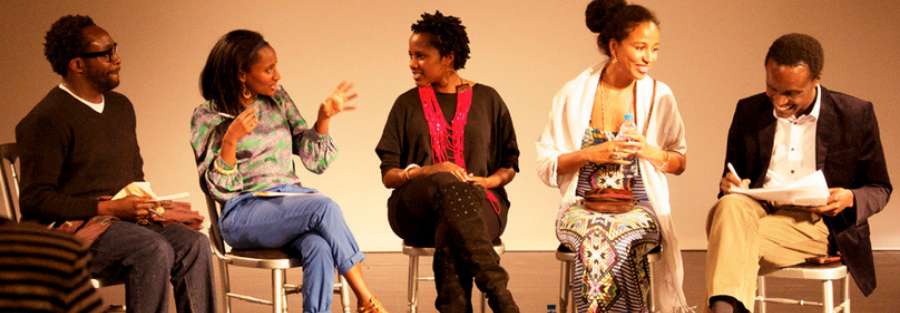Public policy is the biggest driver of change, and the people who implement policy are ordinary citizens. One area which is my daily bread and in which the public policy divide plays out spectacularly is in the climate change space.
Compared to Europe and North America, Africa as a whole has invested significantly in enabling legal and policy frameworks. For example, 52 out of 54 countries in Africa have ratified their Nationally Determined Contribution (NDC), making Africa the most compliant region globally.
What Africa needs to bridge the implementation divide, is not development dollars alone, but a citizenry that is bold, visionary, and selfless enough to devise enterprise solutions to challenges that affect every corner of Africa. The catchment for this citizenry is the informal sector, which already accounts for over 80% of all employment in sub-Saharan Africa. Another catchment is African youth, which constitutes up to 60% of Africa’s population making them the most significant non-state actor constituency in size, that urgently needs to be tapped to drive climate action policy forward.
People are the greatest resource we have and we need to tap into their minds and hearts as the source of wealth. Ignore this at your own peril. Each of us needs to assess what our countries have achieved to date, and what could be done differently to make a better outcome.
For instance, it is documented that an excess of $15 billion has been invested in Africa’s agriculture over the past two decades. Yet, we still grapple with the same challenges we did twenty years ago. Africa still cannot feed itself. Cumulatively, there are a total of fifty-eight major energy initiatives in the continent. Through such initiatives, a total of $30 billion has been invested from multilateral and bilateral sources in just four years (this is excluding the private sector). However, over 60 per cent of Africa is not productively energised. One starts to ask whether MONEY is really the biggest problem in the continent, as it is made to seem.
As an out-of-the-box thinking climate change expert, I have asked myself one big question:
How can we leverage on what we have and use it as the silver bullet, the master key that unlocks the door to accelerated socioeconomic transformation without just waiting to hear from others, since we have delineated our reference point to others and until they speak?
We have to wait for them to determine our next thinking before we can react and clap as we await the next person to take the next move.
I have seen firsthand what a passionate-minded structurally guided people can do. We are seeing lessons accruing from youth actions which we are leading in all corners of the continent, cross hybridising lessons with willing actors in other corners of the continent without physical engagement. This is accomplished through leveraging on the passion and willingness of the willing passionate people. With this approach, we are seeing how this dynamic can play out practically, but at a micro-level.
Young people are being structurally guided to leverage their skills and passion to work with local farmers, cluster them into local cooperatives to leverage economies of scale, and decentralise simple climate action solutions of solar dryers to enable value addition. These solar dryers are enhancing food safety by lowering incidents of dangerous aflatoxin by 53%, enabling farmers to increase the shelf-life of perishables, thus cutting postharvest losses to ensure efficient utilisation of the ecosystem services used to produce the foods Africans consume.
From these practical steps, data has been generated on the financial, market, environmental, and social benefits of youth actions, as well as the gaps that need to be addressed to sustain and upscale these successes. It is this data that is then used to recalibrate policy and make it more implementable.
“Being in the forest and failing to see trees is a curse.” This African proverb is a reminder that we cannot afford to fail to tap opportunities that are within reach. Citizen participation in public policy implementation is one area that the continent must urgently leverage to bridge the policy implementation divide.
Dr Munang holds a PhD in Environmental Change & Policy from the University of Nottingham and an Executive Certificate in Climate Change and Energy Policy from Harvard University Kennedy School of Government.
This content is for subscribed members only. If you already have an account, click here to log in.
Not subscribed yet? Click here to create a FREE account to get instant access to our insights.




